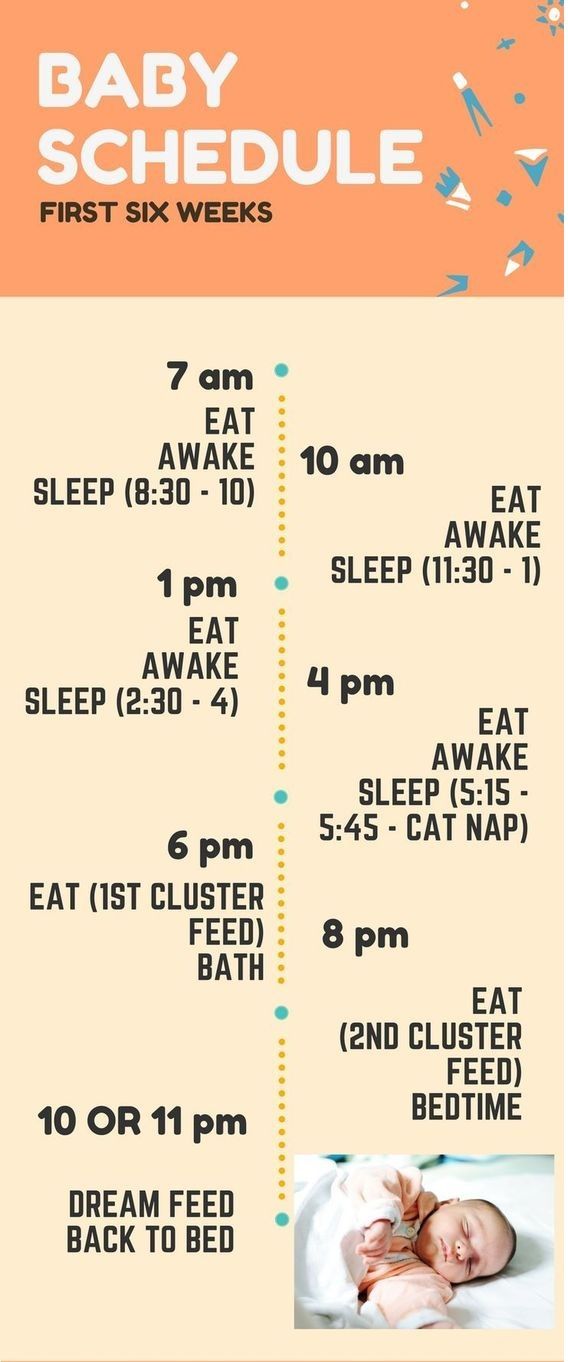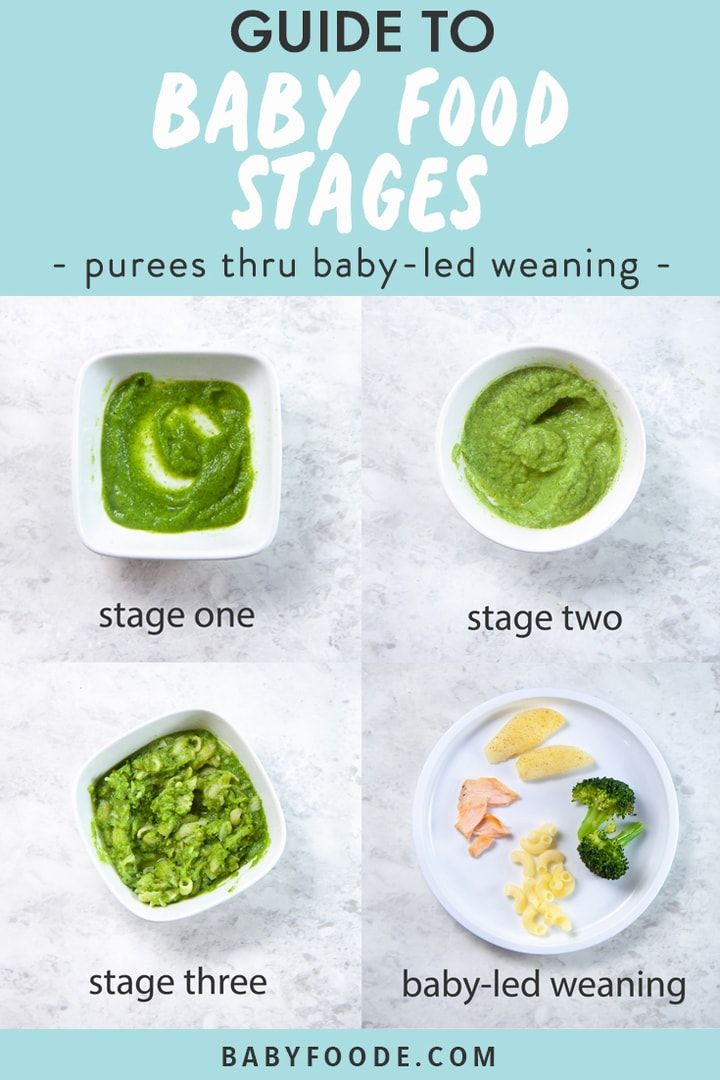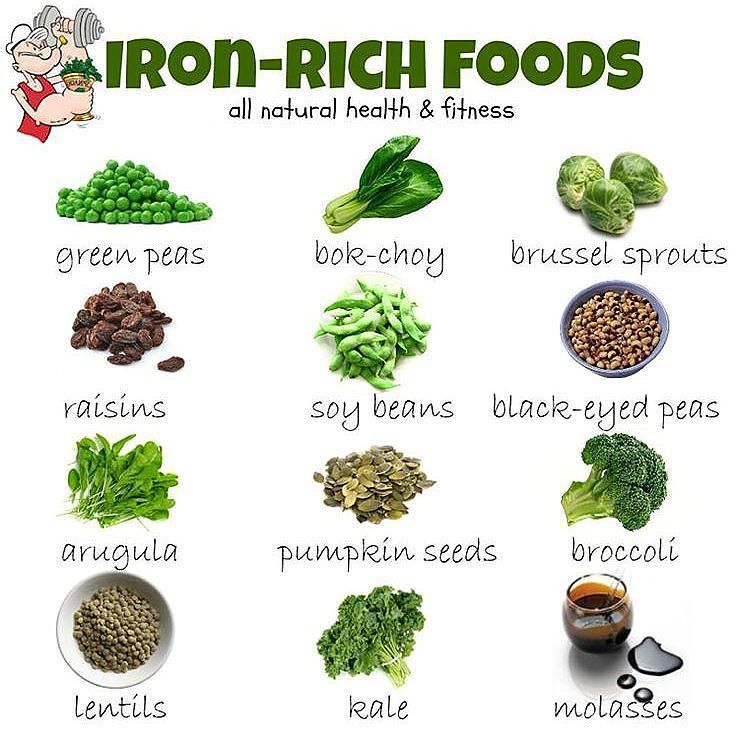8 month old baby feeding and sleeping schedule
8 Month Old Baby Feeding and Sleep Schedule
This article outlines the average 8-month-old baby schedule, including milk feedings for breastfeeding and formula-feeding babies, solids, naps, and nighttime sleep.
8 Month Old Baby Sleep Case Study now available – it includes tips on reducing and eliminating night wakings, lengthening naps, and coping with the 8 month sleep regression. Scroll down for details!
Skip to the schedule
8 month old’s sleepAt this age, many 8-month-olds can sleep through the night, without a feeding, but some won’t and will continue to need 1-2 feedings up through 9+ months old. And, 8-month-old babies take 2-3 naps daily for a total of 2-3 hours per day plus 11-12 hours at night. If you’re having trouble with naps, you might be interested in helping your baby nap.
All babies vary, but here are some rough schedules you can use to make your own for your unique baby. I should warn you that I am in the camp that breast milk or formula should be the primary nutrition for the first year and solids come secondary. Below are the amounts we recommend. For more information on starting your baby on solid food, we have a series of blog posts dedicated to the subject. We include recommendations about how and when to start solids, as well as helpful information on food allergies, recommended products, baby-friendly recipes, and more.
How Many Naps for an 8 Month Old?
Most 8 month old babies take 2-3 naps each day that total 2 to 3 hours. Babies this age stay awake and have wake windows between 2 and 3 hours at a time, on average, but up to 4 hours before bedtime if they are taking two naps. This is a common age for babies to drop the third nap.
Wake Windows for 8 Month Olds
The typical wake windows for an 8-month-old are 2-3 hours with the first wake window being one of the shortest. Usually, that first wake window is around 2 to 2 1/2 hours at this age.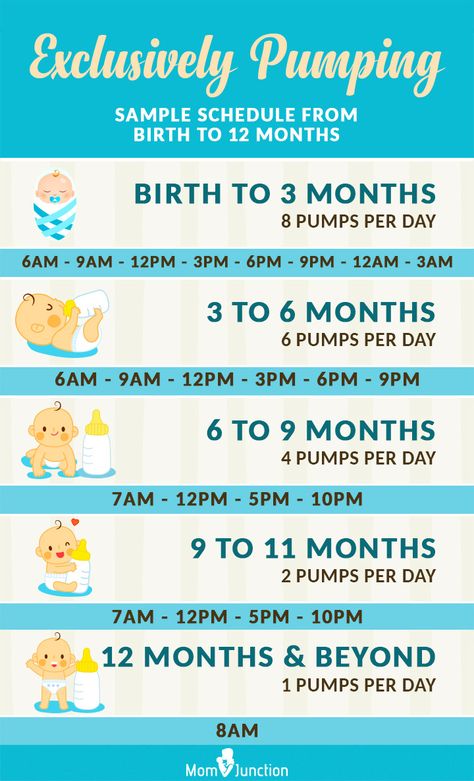 If your 8-month-old baby has already dropped their third nap, they are more likely to stay awake 3 1/2 to 4 hours before bedtime, though, unless they are a long napper.
If your 8-month-old baby has already dropped their third nap, they are more likely to stay awake 3 1/2 to 4 hours before bedtime, though, unless they are a long napper.
8 Month Old Feeding
The amount of food at 8 months is very similar to the 7-month baby schedule, but you will most likely go to 3 small meals per day, rather than just 2.
Average amounts per day:
• At least 5 nursing sessions per day or 26-32 ounces formula or combination
• No more than 2-4 oz of water or juice (to ensure they drink enough breast milk or formula)
• 2-3 servings baby cereal or grains (1 serving cereal = 1-2 Tablespoons dry and grains include Cheerios, 2 crackers, etc.)
• 2 servings fruit (1 serving = 2-3 Tablespoons)
• 2-3 servings vegetable (1 serving = 2-3 Tablespoons)
• 1-2 servings protein (1 serving = 1-2 Tablespoons)
• 1 serving Dairy (1 serving = 1/2 cup yogurt, 1/3 cup cottage cheese or 1 oz grated cheese)
• You can also offer cooked egg yolk (but possibly no egg whites until 1 year old due to allergens — check with your doctor)
The first schedule is what I call a “staggered” approach.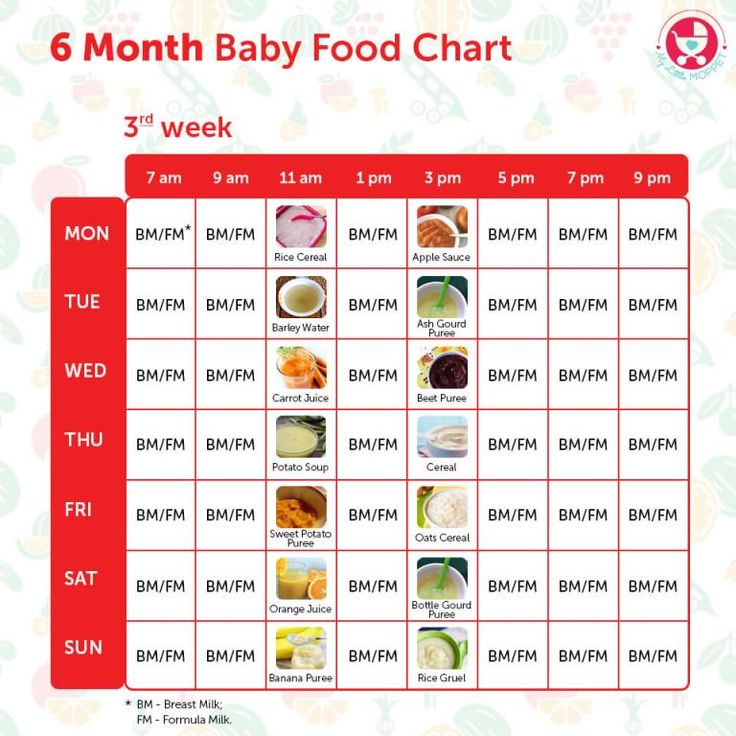 My first son did better with a full feeding and then having solids a bit in between. He was a little hungry but not famished. He just didn’t do well with stopping nursing or his bottle mid-way to eat solids.
My first son did better with a full feeding and then having solids a bit in between. He was a little hungry but not famished. He just didn’t do well with stopping nursing or his bottle mid-way to eat solids.
You May Also Be Interested In: Baby Food Recipes for 8 Month Olds and the Best Ways to Introduce New Foods To Your Baby
If your baby has already transitioned to just 2 naps, please see the 9 month old baby schedule for a sample schedule.
Schedule 1
7:00 – Wake and Breast milk or Formula
8:15 – Breakfast
9:00 – Morning Nap (at least 1 hour)
10:00 – Breast milk or Formula
11:00 – Lunch
12:30 – Breast milk or Formula
1:00 – Early Afternoon Nap (at least 1 hour)
2:00 – Breast milk or Formula
4:00 – Optional Catnap (30-45 minutes)
4:30 or 5:00 – Dinner
6:15 – Begin bedtime routine
7:00 – Breast milk or Formula and Bedtime (goal to be asleep at this time)
+Plus possibly 1 nighttime feeding
If your baby doesn’t mind a more “consolidated” approach to eating, like my second son, here is another type of schedule:
Schedule 2
7:00 – Wake
7:15 – Breakfast plus Breast milk or Formula feeding
9:00 – Morning Nap (at least 1 hour)
10:00 – Breast milk or Formula
11:00 – Lunch
12:30 – Breast milk or Formula
1:00 – Afternoon Nap (at least 1 hour)
3:00 – Breast milk or Formula
5:30 – Dinner plus Breast milk / Formula feeding
6:15 – Begin bedtime routine
7:00 – Breast milk or Formula
+Plus possibly 1 nighttime feeding
Note: When giving any feedings during your bedtime routine, be careful not to create sleep associations, which we saw become important at 4 months old.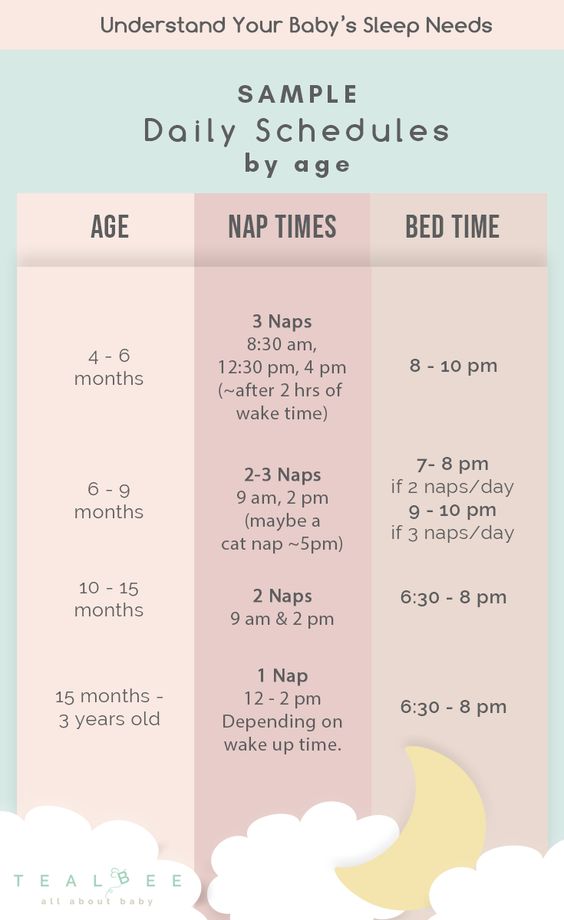
Want more information about how to help your 8 month old sleep well? Check out our detailed case study about Carrie, Ben, Elliot, and Andrew.
Read how Carrie and Ben helped 8 month old Elliot learn to sleep longer stretches at night (and, eventually, to sleep through the night completely!) and take better naps – and how they helped to change those sleep associations that were keeping Elliot awake! Just join our VIP Members Area, and access the case study instantly. And that’s not all – our VIP Members Area is packed with additional premium content and resources: e-Books, assessments, more case studies, peer and expert support, and more. It actually costs less to join than buying products separately!
Looking for more sample 8-month schedules?
We have over 40 sample schedules for all ages in our e-Book, Mastering Naps and Schedules. Banish naptime battles and regain control of your day (and your sanity) starting today!
You Might Also Like:
- The 8/9/10 Month Sleep Regression Explained
- The 8-10 Month Sleep Regression Survival Guide: EXPANDED EDITION (Members Area article)
- Custom Schedule Maker (for members only)
- Mastering Naps and Schedules (Members Area digital e-Book)
- Chat Live with a Sleep Consultant (for members only)
- 3 Signs It May Be Time For Night Weaning Your Baby
- Night Weaning Quiz: Is Your Baby Ready To Night Wean?
- 8 Month Baby Sleep Coaching Case Study (Members Area case study)
- How To Put Your Baby On A Schedule (Members Area audio tele-seminar recording with founder)
- How to Nap Train (chapter in Mastering Naps & Schedules)
- Day-by-Day Nap Training Plan (Members Area article)
Want FREE sleep help that you can put to use right away? Download a copy of our free guide, 7 Common Napping Mistakes! The guide is available to download instantly, which means you can start using the techniques in it as early as today. So download now, and learn why your baby is not napping – and what you can do about it.
So download now, and learn why your baby is not napping – and what you can do about it.
Click here to learn more about how to get your free guide.
A better daytime schedule could be just a few clicks away. So don’t wait – download now, and start your journey to better napping today!
The Baby Sleep Site® is a participant in the Amazon Services LLC Associates Program and other product affiliate programs. If you click on a product link and make a purchase, The Baby Sleep Site® may (but not always) receive a small commission from the company selling the product, but will not affect your purchase price. We only recommend products that we believe are quality products and are good for our readers.
Holistic Sleep Solutions from The Baby Sleep Site
®Do-It-Yourself: Just getting started with your research but you want to stop Googling? Choose from any of our e-Book bundles for practical advice you can put to use TODAY!
Do-It-Mostly-Yourself: Would you like to continue learning with the option of chatting with a sleep consultant? We have a perfect solution! Become a VIP Member for access to all of our premium content, “ask the author,” audio courses, live weekly chat, and more!
Work With a Sleep Expert: Tap into over a decade of experience with thousands of families before you! Get a Personalized Sleep Plan® just for your unique situation, get guidance and answers to all your “what if?” questions while you work through your plan, and benefit from expert support along the way.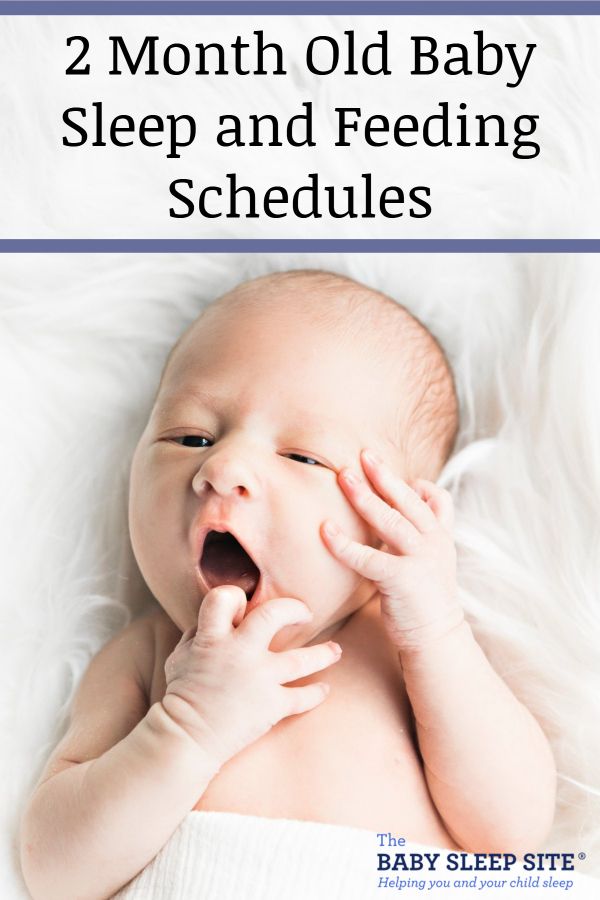 We can’t tell you how many times we’ve heard “I wish I had done this sooner!” Not sure? Read these stories from well-rested parents.
We can’t tell you how many times we’ve heard “I wish I had done this sooner!” Not sure? Read these stories from well-rested parents.
Don’t lose another wink of sleep — GET STARTED TODAY with our gentler, kinder approach to healthy sleep!
Since starting in 2008, we’ve gained over 10,000 comments on our blog!
At this time, we’ve turned the comment sections off. We would, of course, love to hear from you! For help with your specific sleep problems, please learn more about our DIY resources or our sleep consultation services. Or, consider emailing us for a fast and helpful response!
8 Month Old Sleep Schedule
At eight months old, your baby is making developmental and cognitive strides that can impact sleep. Let me share with you common questions I get about eight month old nap schedules, wake windows, sleep regressions, and more.
What are suggested wake windows for an 8 month old? #
Wake windows for an eight month old range from 2.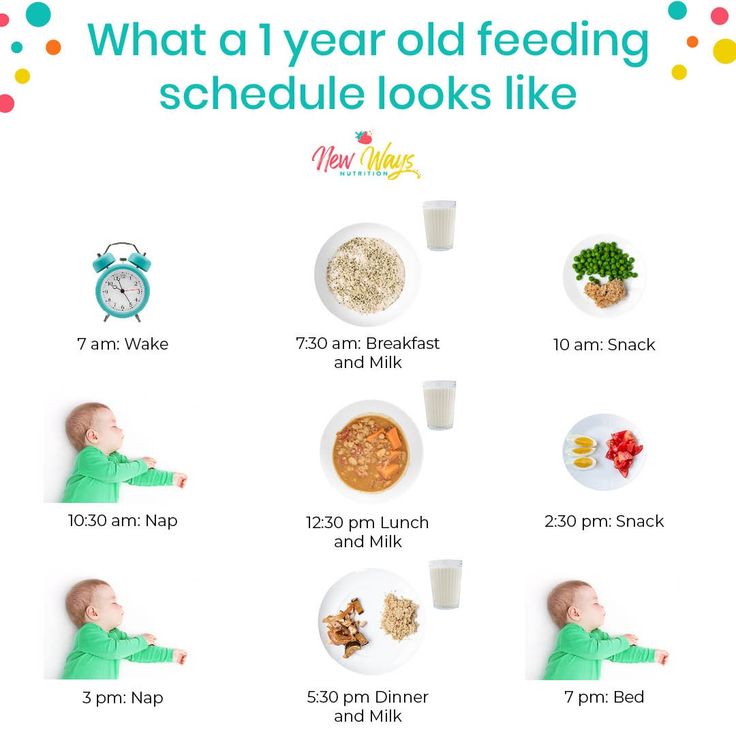 5 to 3.5 hours. Your baby’s wake windows will depend on:
5 to 3.5 hours. Your baby’s wake windows will depend on:
Age – a new eight month old will be on the shorter end of this range, while an almost nine month old will be on this longer end of the range.
Activity level – if most of your baby’s awake time was spent in a car, stroller, or carrier, they may need a bit of time before nap or bedtime to work out some energy.
Time of day – wake windows generally get longer as the day goes on, so you’ll probably find your eight month old can stay awake longer in the afternoon and evening.
Individual development – every baby is different, so some eight month olds will tolerate a longer wake window (3-3.5 hours) while others will need one a bit shorter (2.5-3 hours).
Follow these general guidelines to set up your daily routine:
About 2.5-3 hours after wake time = Nap 1
About 3 hours after the end of Nap 1 = Nap 2
About 3-3.
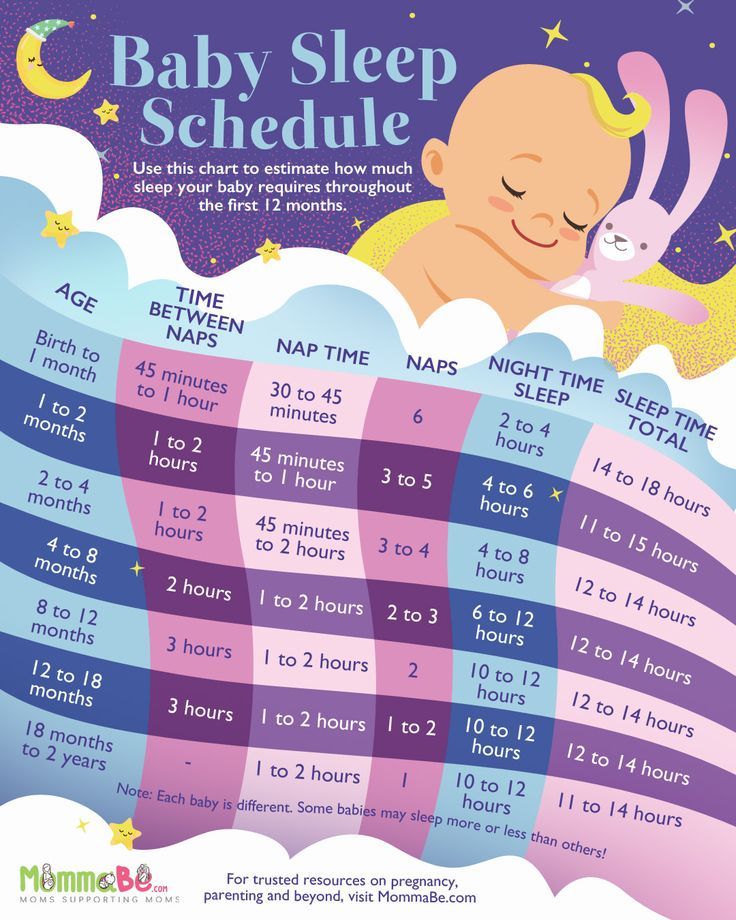 5 hours after the end of Nap 2 = Bedtime
5 hours after the end of Nap 2 = Bedtime
What is a sample daily schedule for an 8 month old?#
Here's one example of a 2 nap schedule for your eight month old. Remember, this is a sample, and your day may look different depending on your baby’s wake windows, nap lengths, and hunger cues. It can also be completely normal for your schedule to vary slightly from day to day.
Parents: Understand, this schedule is just a sample. This is just how one parent was responsive to their baby’s hunger and sleepy cues, while maintaining age appropriate naps and wake windows.
How many naps should an 8 month old baby take?#
Around eight months, most babies have transitioned to 2 naps. If your baby is still taking 3 naps, make sure you're watching for signs it's time to transition to 2 naps.
Bonus tip for Daycare Families: Even if your little one has transitioned to 2 naps at home, sometimes your eight month old may need a 15-30 minute catnap to make it to bedtime on daycare days.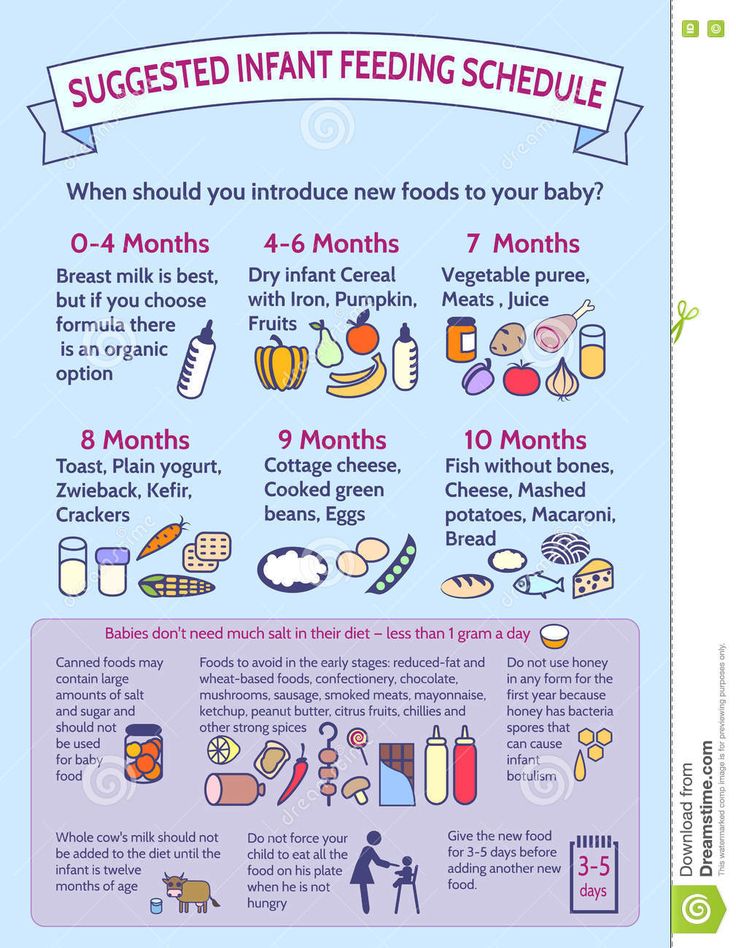 Don’t let the catnap go longer than 30 minutes. We want to make sure your baby is tired enough at bedtime to sleep well.
Don’t let the catnap go longer than 30 minutes. We want to make sure your baby is tired enough at bedtime to sleep well.
How long should my 8 month old nap? How much sleep does an 8 month old need? #
At eight months old, you'll want to aim for:
2.5-3.5 hours of daytime sleep divided between 2 naps
Wake windows around 2.5-3.5 hours
10-12 hours of night sleep
We also want to be sure not to let any one nap go longer than 2 hours. Capping a nap at 2 hours supports good sleep by:
Allowing for sufficient active awake time.
Providing time for adequate feedings during the day to help your eight month old sleep through the night.
Helping you maintain a bedtime between 7:00-8:00 pm.
If you’re struggling to get at least 2.5 hours of daytime sleep, my Conquering Naps class can help.
Why is my 8 month old refusing to nap? Why are naps such a struggle?#
If naps have consistently been a struggle, start by:
Check out these potential causes and solutions for short naps.

Then, if your eight month old is still struggling with naps, know that my Conquering Naps class will provide you with the tools you need and a step-by-step plan to establish consistent daytime sleep.
If your eight month old is suddenly fighting naps, consider:
Is your baby learning a new skill? #
As babies learn new skills, sleep can get a bit disrupted. If you notice signs of a new skill (like crawling or scooting), give your baby lots of floor time to practice. The chance to try out their new skills during awake time makes the skill less exciting during sleep time.
Is your baby still taking 3 naps? #
As babies get older, they need more awake time before they're ready for a nap. If your eight month old is still taking 3 naps and struggling to fall asleep, it may be time to transition from 3 to 2 naps.
Is your baby becoming upset when you’re out of sight?#
Your baby may be experiencing separation anxiety.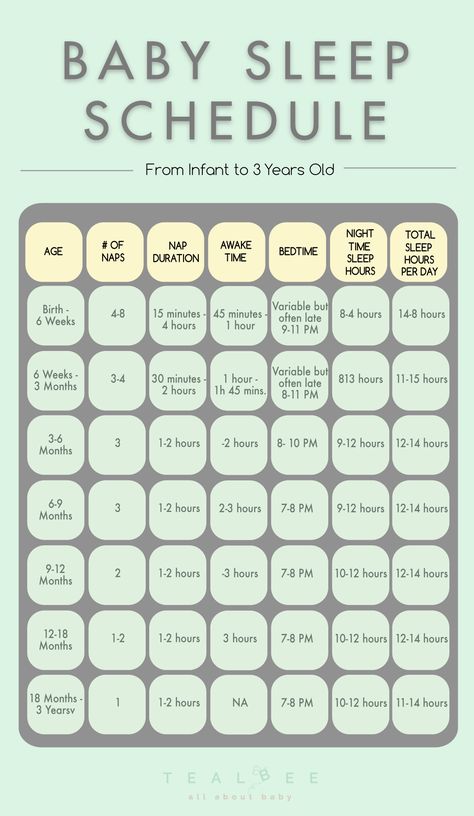 Many babies have a rise in separation anxiety between 8 and 10 months as they develop a greater understanding of object permanence.
Many babies have a rise in separation anxiety between 8 and 10 months as they develop a greater understanding of object permanence.
Is your baby pulling up in the crib? #
If your eight month old is standing in their crib, consider adding a sleep sack and make sure the crib is in the lowest position. Also, during awake time, give your baby opportunities to practice pulling up and sitting down.
What time should my 8 month old stop napping for the day?#
We want the last nap to end by 4:30-5:00 p.m. Most eight month olds will need a 3-3.5 hour wake window between the last nap and bedtime. By ending the last nap by 5 p.m., we’ll maintain a bedtime before 8 p.m..
What are some 8 month old milestones? #
At eight months old, your baby may:
Work on crawling and/or getting up on all fours
Rock back and forth on all fours
Babble vowels and consonants together
Babble with inflection
Pick up objects with a pincer grasp
Bang toys together
Start to understand basic words (e.
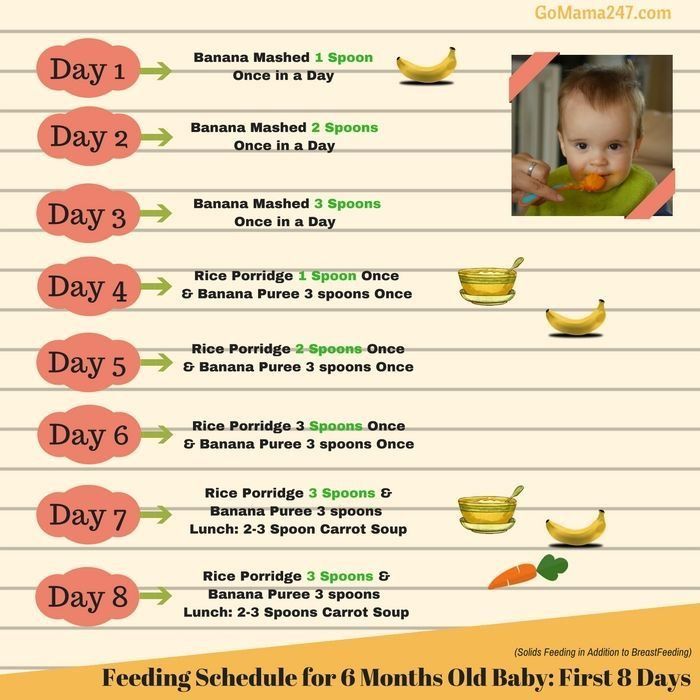 g. no, hi, bye)
g. no, hi, bye)
Keep in mind, milestones are based on ranges, so some babies reach them earlier or later than other babies. If you have any concerns about your baby’s development, speak with your pediatrician.
What are some activities to do with my 8 month old baby? #
There are lots of fun and engaging activities and toys for your eight month old. Here are some ideas:
Practice pulling up and standing while supported with this activity center. It’s a popular choice since it has music and various toys to discover.
Practice crawling by placing objects slightly out of reach, like a ball or push car. This train is great for promoting movement during floor time with its lights and sounds.
Explore different textures around the house, like soft blankets or a brush. You can even use foods (like cheerios and yogurt) or a water table (like this one with rain showers or this one with ducks), which helps encourage pulling up and standing.
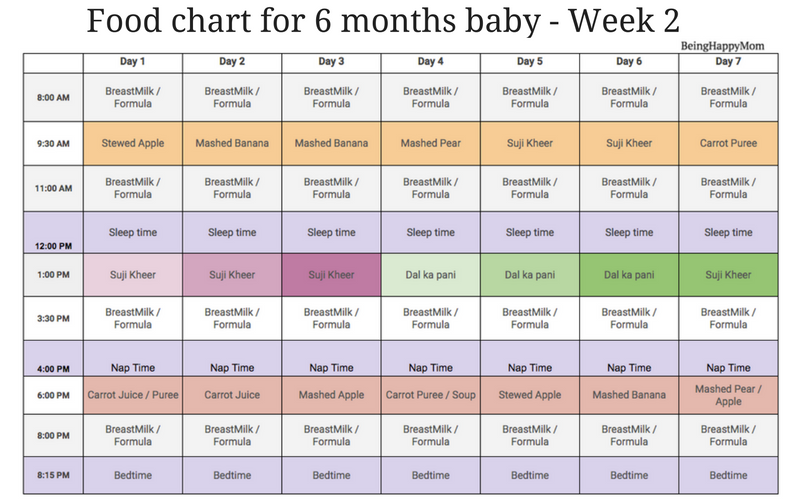
Use touch and feel books to explore textures, pictures, and words.
Practice waving in the mirror or go outside and wave at people and cars passing by to help your baby learn “Hi” and “Bye” (This is also a great way to stretch a wake window!).
What is a good bedtime for an 8 month old? #
For an eight month old, the sweet spot for bedtime is between 7:00-8:00 pm. This time is the best for helping your baby fall asleep and stay asleep through the night. Babies who go to bed past 8:00 pm. typically experience more false start bedtimes, night wakings, and early morning wakings.
There may be some times you’ll need to move bedtime earlier than 7:00 pm. Consider an earlier bedtime if you experience any of the following:
All naps for the day are short and/or disrupted.
The last nap of the day is short or refused.
Your baby is struggling to make it to 7:00 pm and has had at least a 2.
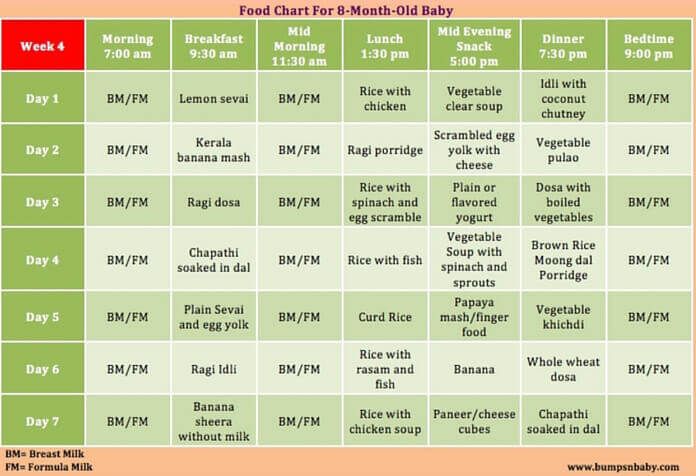 5-hour wake window.
5-hour wake window.Your baby is consistently waking before 6:00 am.
Should my 8 month old be waking up at night to eat? When do babies sleep through the night?#
Every baby is unique, and there’s no specific age when babies magically start sleeping through the night. Most babies can sleep 10-12 hours overnight without a feeding at eight months old. But it’s always best to discuss night feedings with your pediatrician.
If you’re thinking about weaning night feedings (or even if you want to maintain a feeding in the night) for your eight month old, I can help. The 5–24 Month Collection will help you create a gentle and gradual approach to weaning night feedings and reaching your sleep goals.
How do I stop my 8 month old from waking in the night? #
If night wakings are a sudden change, it’s important to rule out any physical concerns – like sickness or teething.
If these aren’t an issue, we can examine other reasons your baby struggles to sleep through the night.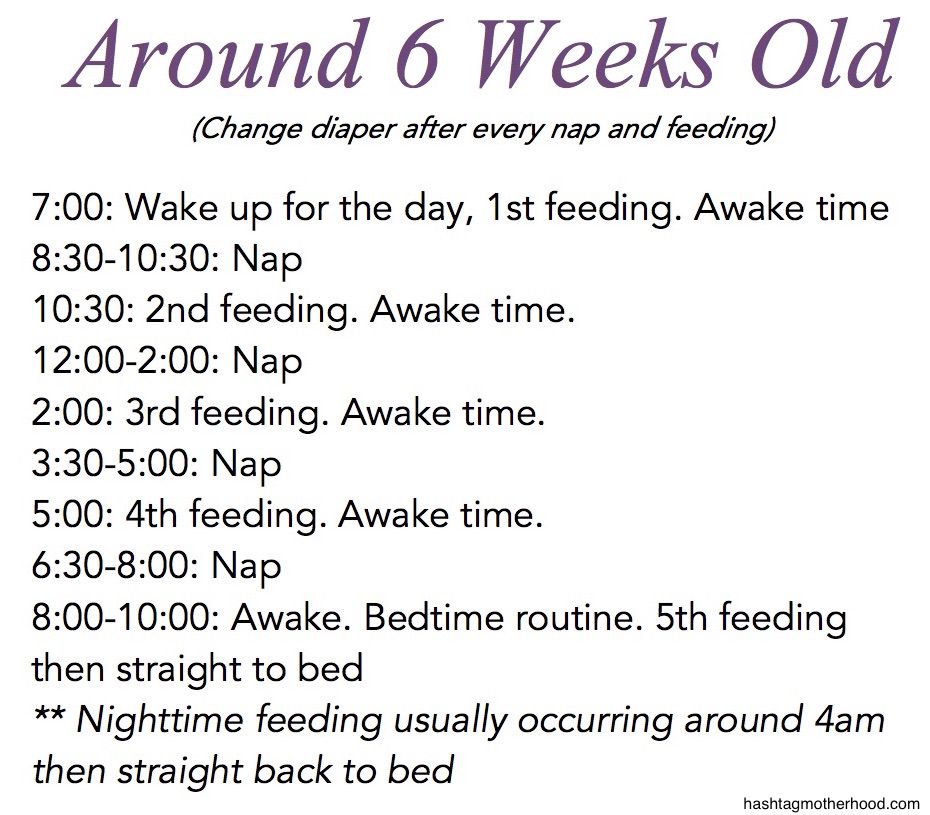 A few of the more common reasons are:
A few of the more common reasons are:
Being ready for increased wake windows
Needing to drop a nap/too much daytime sleep
Developmental progression
Your eight month old may also be struggling because they don’t have the skills needed to sleep independently. Not sure where to start? The 5–24 Month Collection gives you a step-by-step plan to follow. It's a balanced, holistic approach to teaching your little one to sleep through the night while still remaining emotionally connected.
How much should an 8 month old eat? #
Caloric needs vary from baby to baby. The best indicator that babies are on track with eating is that they're following their growth curve.
Here are some guidelines for feeding your eight month old:
Always respond to your baby’s hunger cues by offering the breast or bottle every 2.5-3.5 hours during the day on a flexible feeding schedule.
Offer solids 2-3 times per day, aiming for 30-90 minutes after breast/bottle feedings.
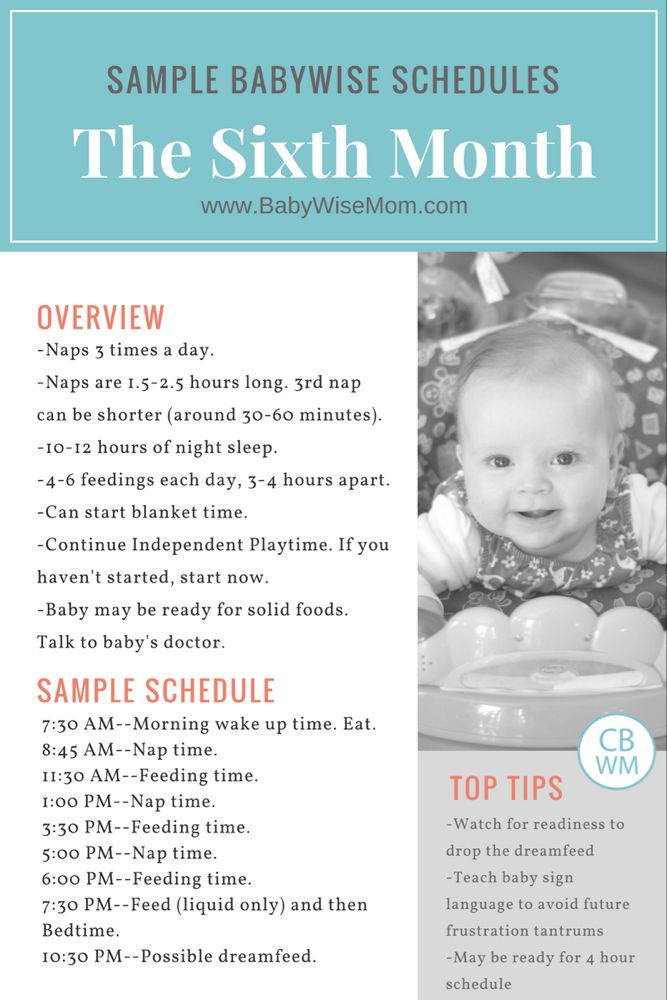
Wondering how starting solids will impact your baby’s sleep? See my blog to learn Do Solids Help Babies Sleep?
Important Note: If you have concerns about whether your baby is getting enough calories during the day, please discuss this with your pediatrician.
Is there an 8 month sleep regression? #
Yes, there is! At this age, babies experience an increase in physical abilities, mobility, and emotional and cognitive development – so we may see changes or disruptions to sleep. This is often called the 8-10 month sleep regression.
You may also find:
Your baby is more distracted during feedings as they explore their world. Try minimizing stimulation to encourage your baby to take in enough daytime calories, which are so important for night sleep.
Your baby is learning object permanence and experiencing separation anxiety.
Should I sleep train at 8 months old? #
At eight months old, you may decide sleep training is the best option if your baby isn’t sleeping through the night.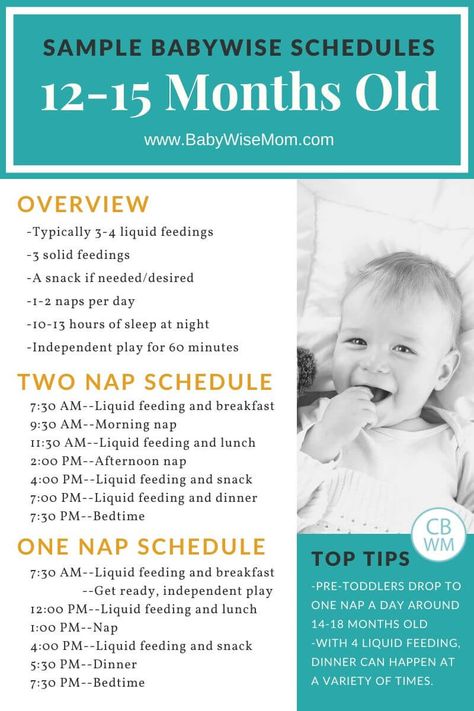 It’s never too late to help your baby get better sleep!
It’s never too late to help your baby get better sleep!
My 5–24 Month Collection walks you step-by-step through a completely customizable and holistic sleep training plan to help your baby sleep independently for 10-12 hours each night. These classes will give you the tools to have a great little sleeper through the first two years of life for days, nights, and every bump along the way.
Still have a 7 month old? Check out 7 month sleep schedules. Already have a 9 month old? I've got you covered with my 9 month sleep schedules.
90,000 children at 8 months - poorly sleeps06/24/2015
578027
963
tables and sleep norms
6–9 months
Tatyana Chkhikvishvili
Tatyana Chkhikvishvili
Head of the Online program , psychologist, sleep and breastfeeding consultant
Mom of two children
Baby sleep at 8 months is still of great importance. You begin to get used to the fact that your baby can already do a lot.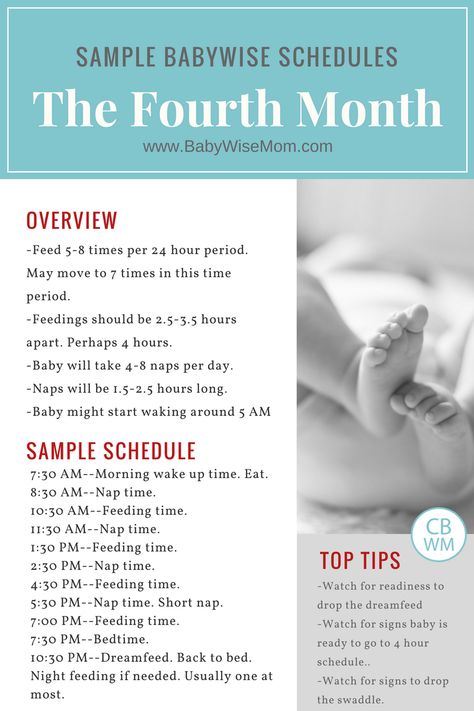 Staying joyful and cheerful throughout the day, full of events, helps sleep - both night and day.
Staying joyful and cheerful throughout the day, full of events, helps sleep - both night and day.
An eight-month-old baby needs 13-15 hours of sleep a day to fully rest. A baby at 8 months sleeps a lot at night and less and less during the day compared to a newborn. The optimal regime includes 10-12 hours of sleep at night, 2-3 hours in total during the day. A comfortable waking time for an eight-month-old baby is usually 3-4 hours. The baby grows and develops rapidly, the time of wakefulness increases, the sleep pattern changes.
Child crisis calendar
Stage of development
In the period from 8 to 10 months, scientists record the rapid development of the brain in babies, thanks to which the baby begins to perceive the world around him in a new way.
Mental Leap: The World of Categories
From the age of 8 months, children discover and comprehend new interconnections of the World of Categories.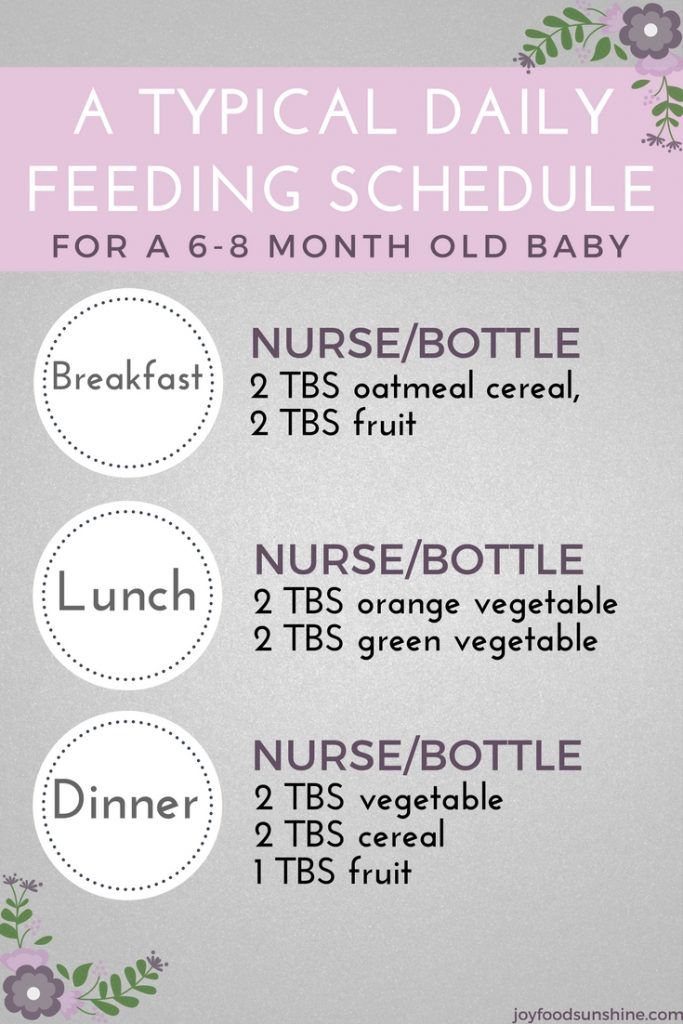 Toddlers study the surrounding space and understand that objects and phenomena can be sorted into groups according to certain characteristics. For example, a child can now understand that "cat" is a common name for a whole group of animals, regardless of the color and whether it is real, toy or painted - it will still be a cat.
Toddlers study the surrounding space and understand that objects and phenomena can be sorted into groups according to certain characteristics. For example, a child can now understand that "cat" is a common name for a whole group of animals, regardless of the color and whether it is real, toy or painted - it will still be a cat.
The child is 8 months old, does not sleep well, cries a lot - what is wrong with him?
Sudden changes in consciousness cause fear and anxiety in the baby. The anxiety period lasts an average of 3 to 6 weeks. The child may cling to clothes, require more attention, refuse to change the diaper and dress, eat and sleep worse, and take a long time to go to bed.
"Mom, don't go!"
The crisis of the World of Categories reinforces the baby's fear that the mother may leave and not return. The child tries to hold on to you as tightly as possible, resists any separation - the fear of separation from the mother can get a new round of development.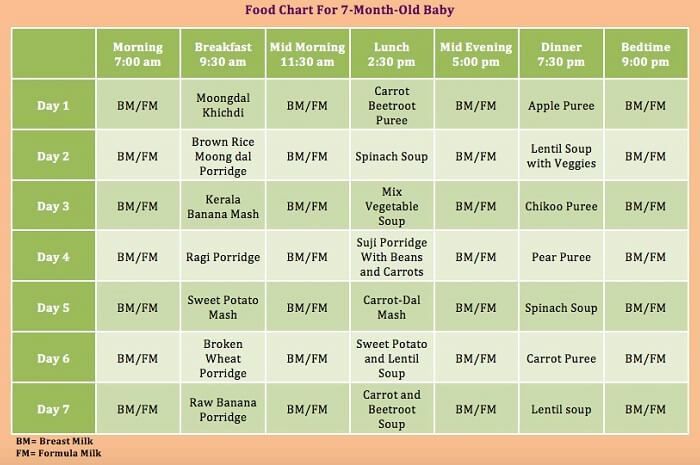
Physical development
Training new skills: crawling, standing up, mastering new territories - this takes up the baby's waking time at 8 months. But even during sleep, the development of new skills may not allow the baby to sleep peacefully: the child may begin to crawl in the middle of the night or jump to his feet with his eyes closed, rest against the side and cry without opening his eyes, finding it difficult to return to a lying position.
| | Daytime nap |
| The schedule of many children by the age of 8 months has two daytime sleeps of 1–1.5 hours. Some babies may still have 3 naps, or they may be in the process of transitioning to 2 naps. In this case, the last evening sleep will be short - usually about 20-40 minutes. | |
| | Night sleep |
An 8-month-old baby needs 10-12 hours of sleep a night to fully recover.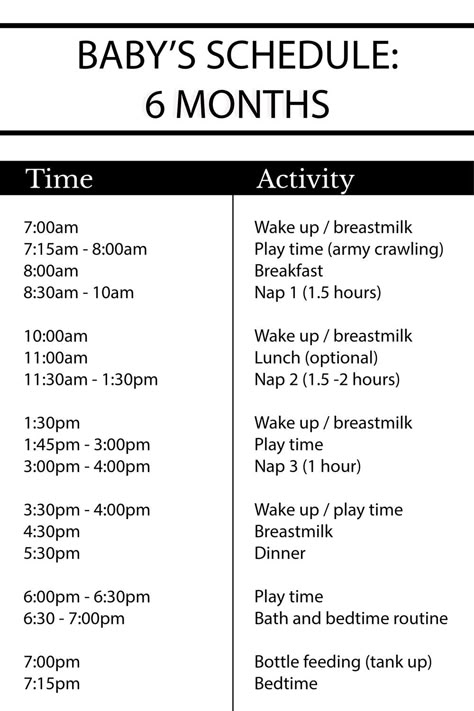 The quality of sleep directly depends on the ability of the child to fall asleep independently. If the baby knows how to fall asleep on his own, then when he woke up (for example, practicing the new skill “to stand at the side”), it is enough for the mother to simply transfer him to a lying position, and he will be able to calmly continue sleeping. If the baby falls asleep only when rocking, feeding, etc., you need to repeat these steps every time you wake up. The quality of sleep directly depends on the ability of the child to fall asleep independently. If the baby knows how to fall asleep on his own, then when he woke up (for example, practicing the new skill “to stand at the side”), it is enough for the mother to simply transfer him to a lying position, and he will be able to calmly continue sleeping. If the baby falls asleep only when rocking, feeding, etc., you need to repeat these steps every time you wake up. |
Tip of the month
Sleep regression at 8 months. How to help?
Due to changes in consciousness and physical abilities, sleep may become worse, even if the child slept well until 8 months. Try to give your baby maximum contact with you during the day and, if necessary, at night. Provide space for new experiments and physical skills. Be patient and watch carefully so that the baby does not get overexcited and does not "overwalk".
If you are very tired and it is not possible to improve sleep on your own, seek individual help from a BabySleep consultant, we can solve even the most complex "sleep problems".
578027
', nextArrow: '', responsive: [{breakpoint: 1199, settings: {arrows: !1, infinite: !1, slidesToShow: 1}}] }) })Elena Muradova
Founder of BabySleep, the first sleep consultant in Russia and the CIS
Daily routine for a child at 8 months. Sleep and nutrition
01/18/2019
85
When my eldest son was 8 months old, I stopped recognizing him. The kid became not only very mobile and inquisitive, but also stopped sleeping and eating, as before. What changes at this age?
At 8 months, the baby still continues to eat up to 700-900 milliliters of formula or breast milk per day. But the food is more varied. In the menu of an eight-month-old child, you can include fruits or fruit puree, grated cottage cheese, pureed meat, egg yolk, boiled vegetables.
At the same time, as solid foods increase, you will feed less formula or breast milk. It is also worth remembering that the child needs to drink water, but it is better to wait with compotes, tea and juices. Cow's milk should also not be given as complementary foods for up to a year.
At this age, the child usually grasps food well and is able to chew better. Therefore, during feeding, it is already possible to cut food into small pieces so that the baby learns to eat on his own. Bananas, pasta, meat and vegetables are suitable for this. Never leave your baby unattended while feeding. Avoid grapes, raw carrots, raisins on the menu, as they are easy to choke on
The baby is left on five meals a day, gradually expanding the menu of complementary foods. Offer new food in the morning. And in the evening - dishes familiar to the child. Organize your menu according to the season.
Should I feed at night? Some babies may wake up for 1-2 feeds, but by this age most babies are able to sleep through the night without waking up.
In agreement with the pediatrician, you can wean from night feedings if you see that the baby wakes up not because of hunger, but to prolong sleep by sucking. In this case, watch your meals throughout the day.
How much and when to sleep baby
Eight-month-old babies are more awake and sleep less. This happens in connection with their physical development, the maturation of the nervous system and the need for greater socialization.
By 8 months your baby will sleep 10-12 hours a night. You may also notice that with three naps during the day, bedtime is delayed, and at night the child sleeps restlessly. This suggests that your baby is old enough and ready to switch to a regimen with 2 naps during the day. But there are children who live well on a three-nap regimen until 9months.
How long should I do them and when?
Now is the time of the formation of the regime by the clock, and not by the time of wakefulness.
Approximate daily routine from 8-8.5 months:
Start the day at 06:00-07:00
Morning nap - at 09:30/10:00
Lunch nap - at 13:30/14: 00
Going into the night - no more than 3-3.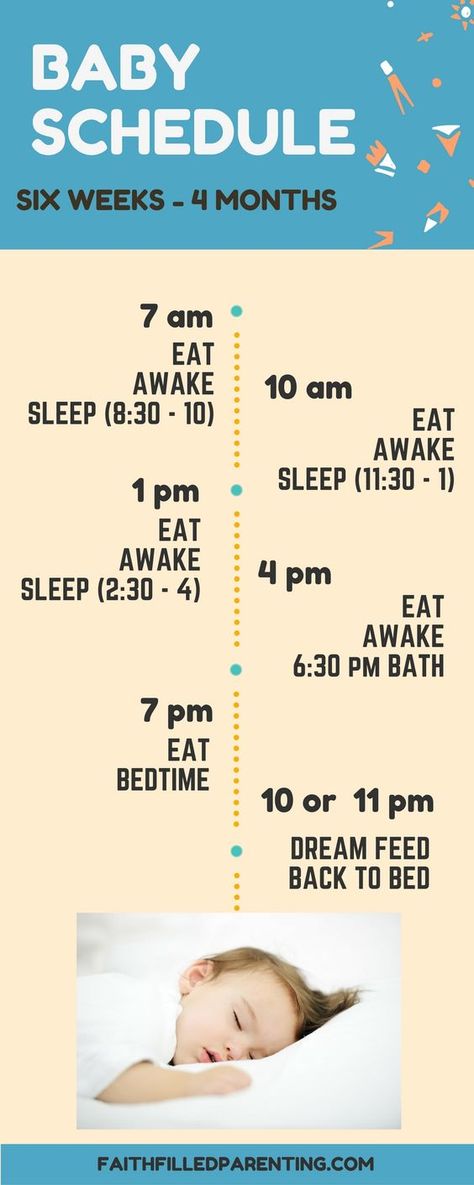 5 (sometimes 4) hours after the end of the second sleep.
5 (sometimes 4) hours after the end of the second sleep.
It is advisable to maintain this 2-nap daily routine for up to 15-18 months, changing the bedtime if necessary.
A good daytime sleep of the baby now lasts at least 1 to 1.5 hours.
From 8 months you may notice that the baby's sleep has deteriorated dramatically.
There are several reasons for this:
- The kid is actively mastering a new skill - he stands at the support, crawls and takes his first steps. He can practice new skills in his crib: crawl at night, get to his feet with his eyes closed, and cry without knowing how to lie down again. Show your baby how to return to the supine position. For safety reasons, remove all unnecessary items from the crib: soft sides, a blanket.
- The baby begins to realize that he and mother are not one, and that mother can leave at any moment. This anxiety makes him not let go of his mother a single step and resists laying down.
